With each passing year, we see competitive games gaining more and more space, in addition to attracting millions in investments and audience. Recent debates have even raised the possibility of e-sports being part of the next Olympics!
With this in mind, companies don’t spare any effort to develop quality competitive titles, motivating the community to play ranked modes with a strong eSports scene. Today, games like these are the majority on the market.
With this in mind, we at UmGamer have worked on an article to help from players who simply want to climb the ranks to those who intend to act as cyber athletes.
Get into the habit of training
It’s extremely important that you develop the habit of training before starting your play session. Each title has its main training method. The ideal for FPS games such as Valorant or CS2 is to enter a specific scenario with some still bots and others moving around to practice landing as many headshots as possible, in addition to understanding the positioning and peculiarities of each map. In League of Legends, it’s recommended to go to a training/custom match to practice performing combos and getting the exact timing to attack the troops and get the last hit.
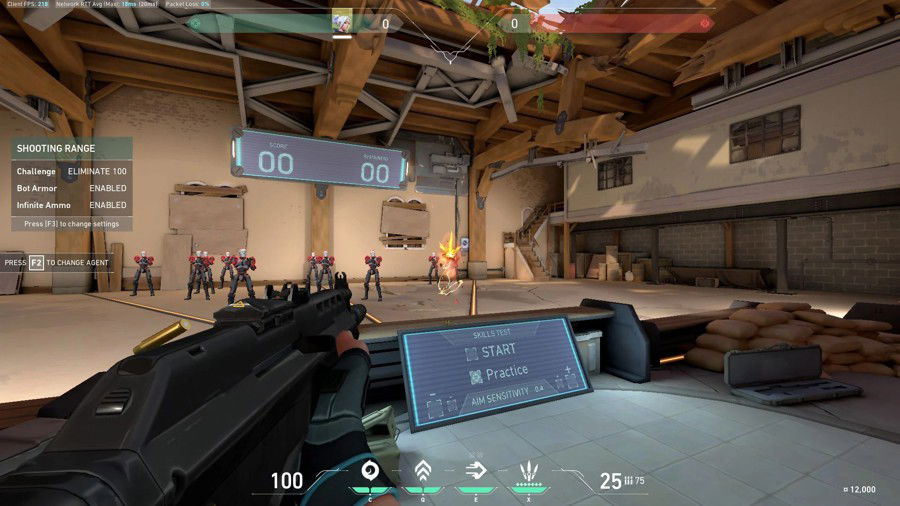
Understand how training works in your favorite game and start using it. Another tip is to play reflex or quick-thinking games sometimes, to practice improving your brain's response time. For example, many League pro players play Osu while they are in queue for a match.
Be Careful of mental fatigue
Have short training sessions, anything over 30 minutes or an hour can be tiring for your mind, and you’ll start to have a slower reaction time during matches.
Study and Watch Replays
After your training and matches, include theory study in your routine, in addition to practice. Studying and watching replays is a great way to expand your concepts. Understanding how you should behave in a specific situation will help you in future games.
Have Game Awareness
Even though I’ve played League for many years, I was stuck in Silver until I finally understood that I couldn’t just play matches on autopilot. From then on, I made it a commitment to reach Diamond for the first time within 30 days, and I did it! In addition to becoming the third-best Zac player - a character in the game - in Brazil after achieving the Master rank.
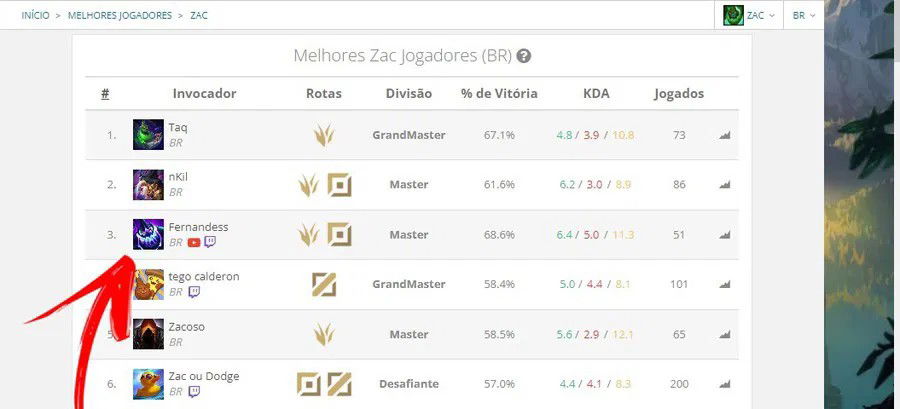
Don't play on autopilot
When we use the term “play on autopilot”, we’re referring to someone who plays while watching a video or talking to someone, without fully focusing on the match. Simply blaming your teammates after a bad play won't help you at all. Always try to think about what you can do at that moment to gain an advantage - that's why it's important to watch replays.
In League, for example, try to take note of when an opponent uses their resources to know if they’ll have an Ultimate or their Spells available in a possible fight. Also, start to understand what your stance will be in each match, I’m a more aggressive player and I like to force fights, but it’s necessary to know when this style will result in disasters based on the enemy champions and items. In FPS, the ideal is to notice and communicate which utilities and abilities have already been launched by the enemy team.
A casual player rarely thinks about these issues, they often play on autopilot and blame their own team. Having this awareness and, on top of that, analyzing your own plays afterward, will give you a huge advantage in the long run.
Make the most of any information
Each game gives the players some information, such as a minimap, amount of gold, among others. Always use this knowledge!
In League of Legends, you can always look at the minimap to understand the enemy's positioning. Starting a fight without this notion can be detrimental, since you could be surprised by a Jungler, for example.
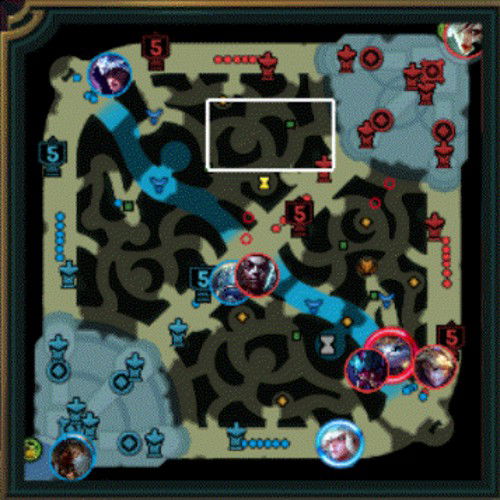
In Valorant, we also know the amount of gold each player has in each round, unlike in CS2. This allows us to predict what the enemy's weapons will be.
In a round where opponents are low on cash, you can be more aggressive, expecting to find them with a cheaper pistol or submachine gun, and not being surprised by a Vandal.
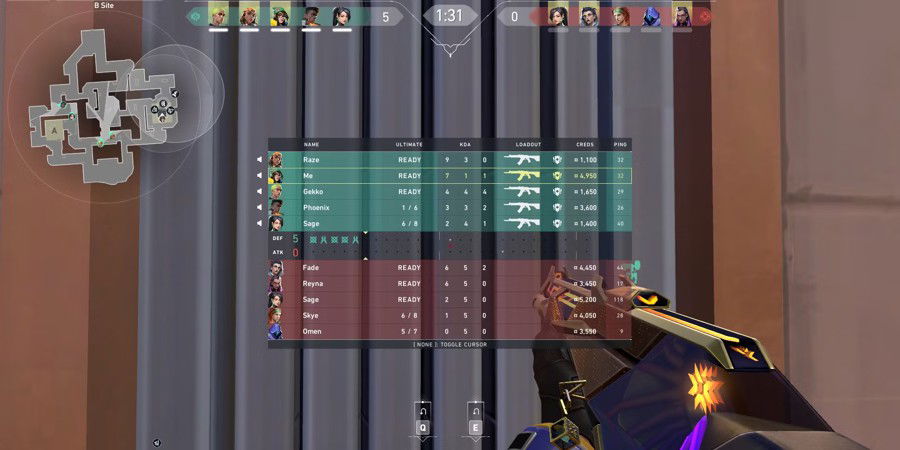
Communicate
Just as capturing information is important, you should also be concerned about communicating it. Did you see an opponent moving towards your team? Signal it! Did you see an opponent using an important resource? Signal it!
Mental and emotional control
All the topics covered here are essential. Even the best player in the world needs emotional control to stand out in a good way.
How to avoid “tilt”
The famous “tilt” happens when you’re completely frustrated, shaken and nervous, drastically altering your reaction speed and decision-making. Usually, players who’ve reached this stage tend to constantly change strategies in several ranked matches without even training or resting between them, collecting defeats and negative performances.
To avoid this, start taking note of what triggers and signs initially show for your frustration, and work on breathing and calming exercises when it happens.
Play a few games per day
Another way to avoid tilting during your games is to play a few of them per day. This tip varies from person to person; I, for example, like playing several times a day. However, it’s a fact that players who play between 3 and 5 games per day have less mental fatigue and are better prepared to deal with frustration triggers.
Participate in amateur championships
During my journey in competitive games, I’ve had the pleasure of meeting the most diverse types of people, and the most prepared ones were those who already had experience in amateur tournaments or in team training. Newer cyber athletes usually feel more pressure in competitive games, and this topic will help you with that.
Settings and Hardware
Finally, invest time and money in settings, software and hardware for better performance in the game. Putting together the ideal setup, with a good monitor, mouse and keyboard, will be essential.
I also recommend looking for a more suitable and optimized configuration for each game. CS2, for example, has some visual resources that, when configured correctly, can give you a small advantage.
Finally, some programs that give you statistics and information will also help you. In card games, for example, professionals usually use software that notes which cards the opponent has already used. As long as the app is allowed by the game developer, there are no problems!
Conclusion
I hope you enjoyed this article! The competitive esports scene is just at its beginning and there’s still much more room to be explored.
I’m available for any questions or suggestions.












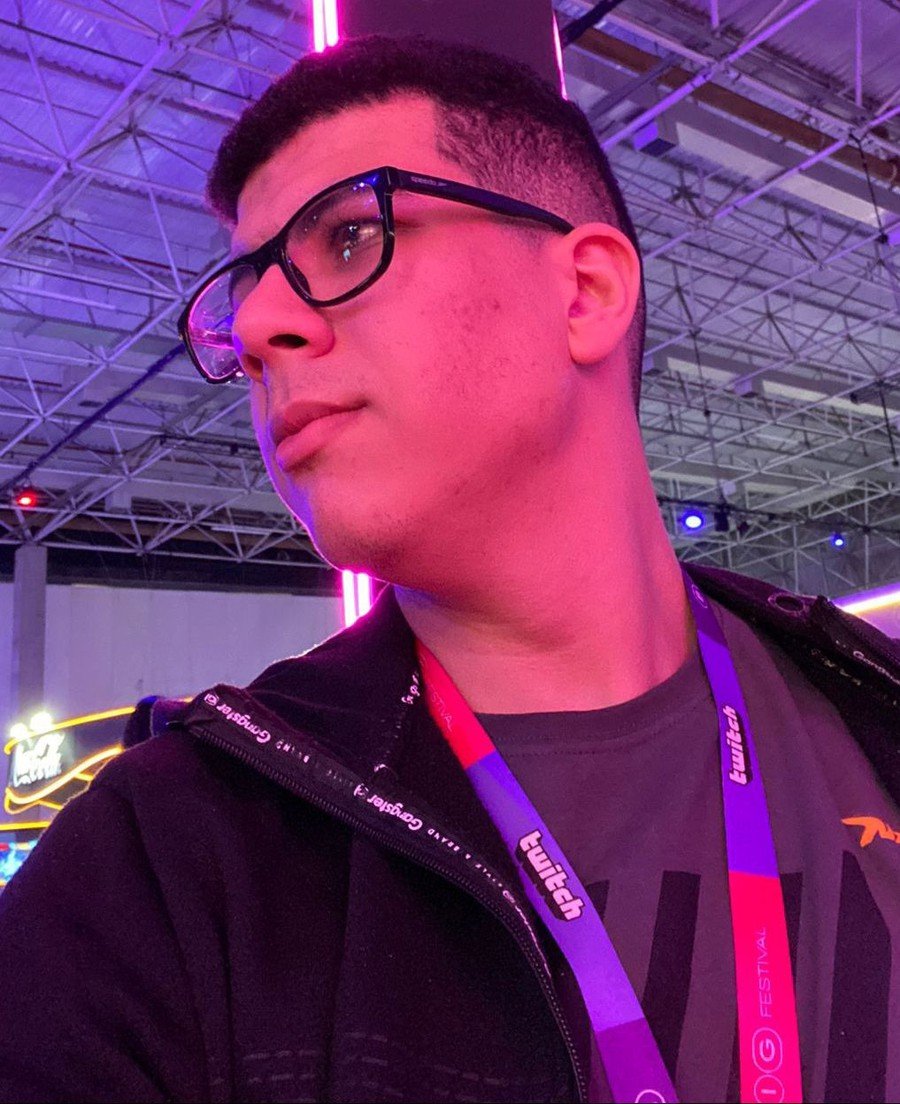

— Comments 0
, Reactions 1
Be the first to comment